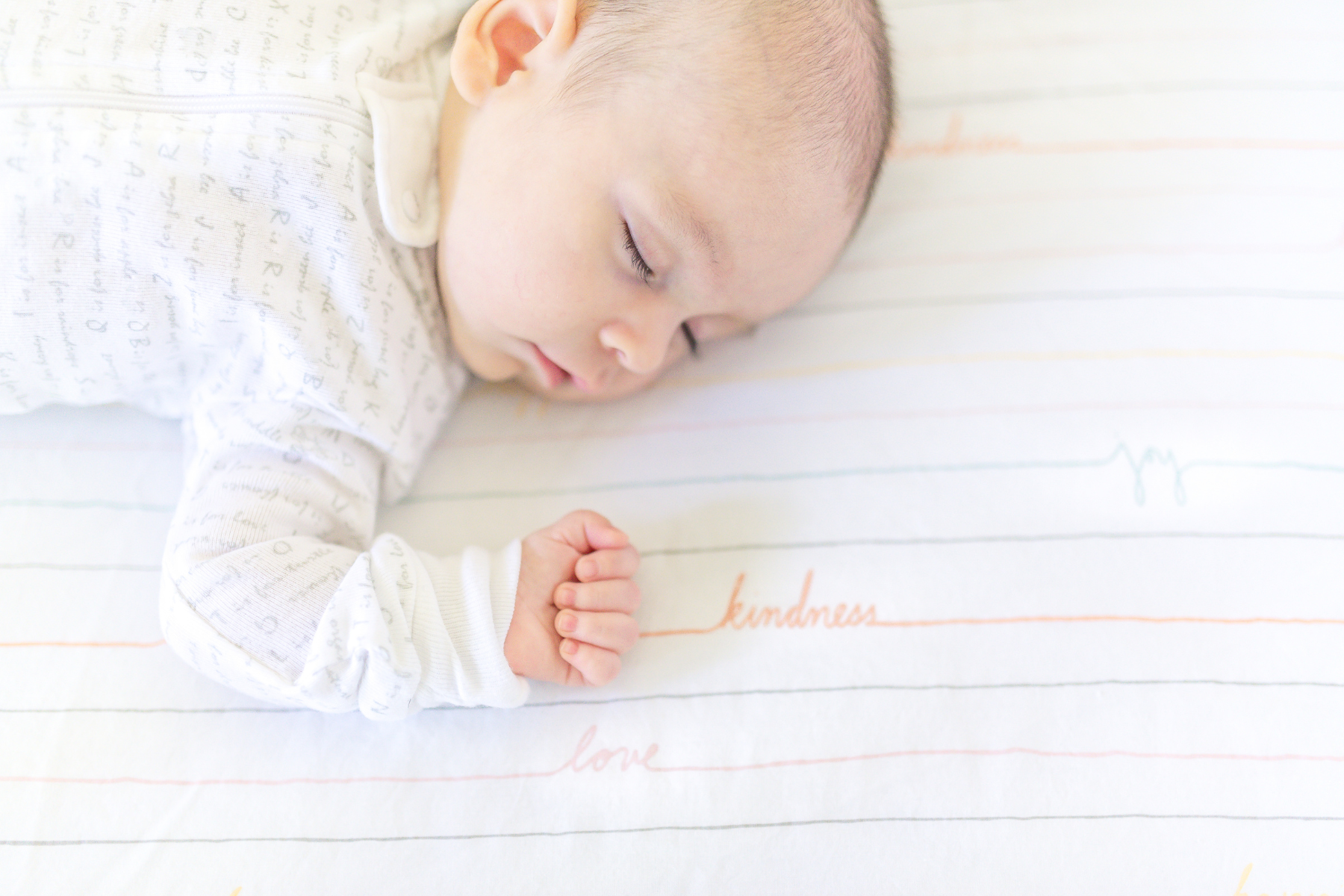The Sleepable Blog
welcome to
Should You Wake a Sleeping Baby?
I’m team captain for Team Sleep. But sometimes it may be necessary to wake a sleeping baby to help in the grand scheme of quality, restorative sleep! When might be some of those times? Keep reading to learn 4 circumstances I recommend you wake your sleeping baby.
Newborn Feedings:
Newborns have tiny bellies and need to be fed frequently during those first few weeks to ensure adequate caloric intake. But, during this time they also sleep a lot and may need a reminder from you that it’s time to eat. It’s very common for newborns to lose weight after being born and frequent, *full* feedings are key to getting them back to and surpassing their birth weight. Always consult your pediatrician regarding how often you should wake your baby to feed, when you can space out feedings, and when any feeds overnight can be dropped.
Sorting out Days and Nights:
Waking your newborn to feed frequently during the day not only ensures full bellies. Also, it provides them opportunities to be exposed to natural light. Although it may be brief, waking a newborn to have purposeful, stimulating awake time and exposure to light during the day will help sort out any day/night confusion they may have.
To Preserve a Daytime Sleep Schedule:
As a baby’s circadian rhythm begins to be established around 4-6 months, you’ll start to see a fairly predictable sleep rhythm emerge. You may need to wake them to protect their sleep pattern and ensure that sleep occurs at the optimal times to obtain restorative sleep. This could mean waking them in the morning to prevent their day from starting too late and throwing off naptime(s). Or, if on two or more naps, you may need to wake them from a nap to protect the timing of later naps.
To Protect Bedtime:
If a nap ends too close to bedtime, your little one may have a harder time being put down at an age-appropriate bedtime. This may lead to a later bedtime that is ultimately past their ideal bedtime window and cause more unwanted sleep hiccups (i.e., bedtime battles, delayed sleep onset, night wakings, etc.). Having a set cut-off time for when all day sleep must end will help ensure your little one has had enough time to develop an appropriate amount of sleep pressure to fall asleep easily at their ideal bedtime.
If you have more questions about your child’s sleep schedule or feel like you’d benefit from individualized support to get your child sleeping at optimal, restorative times, let’s chat! Book your discovery call today!

Hi there! I'm Maura, owner of Sleepable Solutions. I’m a mom, a pediatric nurse practitioner, and a certified pediatric sleep consultant. My passion is to educate and empower parents to help their children sleep through an individualized sleep plan based on a holistic, science-based approach.
Meet The Author
Previous Blog Post
Next Blog Post